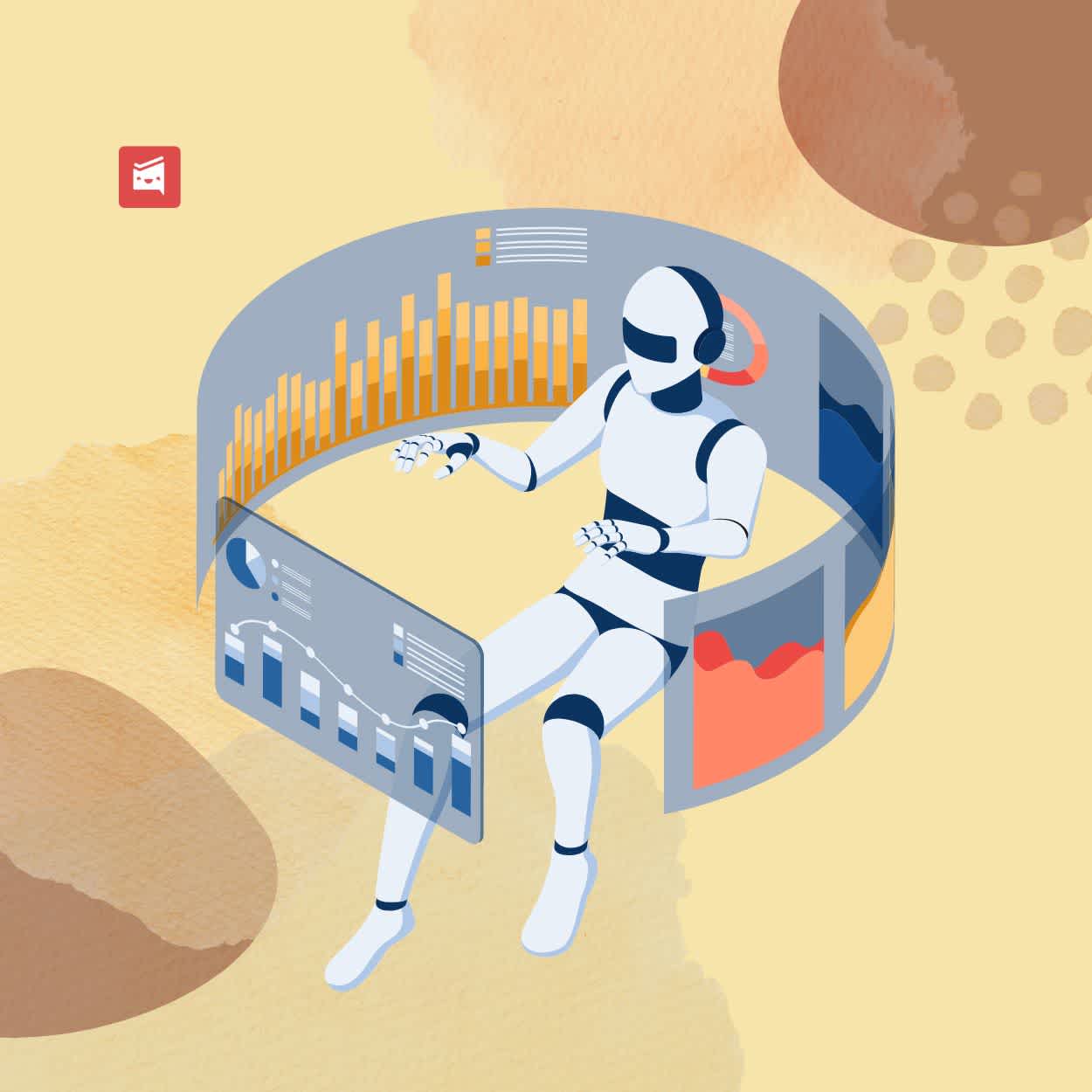How to Use AI in Project Management
ByJulian Gette
Workast publisher

Workast publisher
Embracing the integration of Artificial Intelligence (AI) into project management marks a transformative shift in how organizations approach and execute their projects. AI, with its advanced algorithms and machine learning capabilities, offers a strategic advantage by enhancing efficiency, mitigating risks, and providing valuable insights.
In the below article, we’re going to more closely examine how you can incorporate AI into your project management strategy and help your organization position itself at the forefront of technological innovation.
Efficiency in project planning receives a significant boost through the integration of AI. Automated task scheduling, driven by sophisticated algorithms, allows for the optimization of project timelines and resource allocation.
AI tools are increasingly being used to do things like analyze historical project data and team performance, provide informed recommendations for optimal task sequences to aid in strategic decision-making on project timelines and are even capable of doing things like entire app generation.
This also ends up enhancing resource allocation by offering real-time insights into team availability, skill sets, and workload. More generally speaking, the integration of AI into project planning empowers your team to work smarter, ensuring a more strategic and successful project execution.
AI plays a pivotal role in elevating decision-making within project management. Predictive analytics, a key feature of AI, assesses potential risks by analyzing historical data and identifying patterns. This proactive approach enables teams to address issues before they escalate, contributing to more informed and strategic decision-making. Furthermore,
What’s more, AI-generated reports and dashboards provide real-time insights into project progress, empowering stakeholders to make data-driven decisions, which results in better decision-making.
All of this allows organizations to strengthen their ability to navigate complexities and uncertainties with confidence, ultimately enhancing the overall efficiency of project management.
AI also has the ability to greatly improve communication and collaboration–cornerstones of successful project management. Whether it’s via the implementation of virtual assistants powered by AI, the streamlining of communication by automating routine tasks, or scheduling meetings and providing timely project updates, AI is revolutionizing the way organizations communicate.
Additionally, collaboration tools integrated with AI features, such as real-time document editing and automatic notifications, create an environment conducive to cohesive teamwork. The incorporation of AI-driven communication and collaboration tools fosters increased productivity and efficiency in project execution, enabling teams to work seamlessly.
Perhaps nowhere else is AI helping to improve operations than in the domain of repetitive and time-consuming tasks.
The integration of AI into project management alleviates the burden of repetitive and time-consuming tasks, becoming a key ally in eliminating manual data entry, reducing the risk of errors, and ensuring data accuracy. AI-driven workflow automation accelerates project timelines by automating routine processes like approvals, notifications, and document routing.
Both of these improvements not only help to increase efficiency but also minimize bottlenecks in project execution. By leveraging AI to automate repetitive tasks, organizations optimize resource utilization, allowing teams to redirect their focus toward more strategic and value-added activities.
Efficient resource management, vital for successful project delivery, receives a significant boost through the integration of AI. These include things like predictive maintenance facilitated by AI algorithms, enabling organizations to anticipate and address potential issues with project resources before they become critical.
It also extends into data analysis. Analyzing historical data and performance metrics, AI provides insights into the maintenance needs of equipment, ensuring operational efficiency. Additionally, AI-based resource utilization analysis optimizes the allocation of human resources, strategically deploying team members where their skills are most needed. The integration of AI ensures organizations maintain resource efficiency, contributing to the overall success of project execution.
The infusion of AI into project management introduces real-time monitoring and reporting capabilities that redefine how organizations track project progress. AI-driven project monitoring tools offer continuous insights into key performance indicators, allowing for a proactive approach to managing tasks, timelines and eve initial planning.
Automated reporting systems powered by AI streamline the generation of comprehensive reports, saving valuable time and ensuring stakeholders have access to up-to-date information. This real-time visibility not only facilitates better decision-making but also enhances transparency across the organization, promoting accountability and informed strategic adjustments as needed.
Despite the promising benefits, integrating AI into project management may present challenges. Addressing concerns, such as data security and team resistance, is crucial for successful implementation.
Organizations can overcome these challenges by ensuring robust cybersecurity measures, providing comprehensive training programs, and fostering a culture of openness to change. Cybersecurity threats and AI will progress hand in hand, both from the perspective of better cybersecurity management and threat mitigation, and the intensity and sophistication of the threats faced by modern organizations.
Implementation tips include starting with pilot projects, gradually scaling up, and collaborating with AI solution providers to tailor systems to specific project management needs. By acknowledging potential challenges and adopting a thoughtful implementation strategy, you pave the way for a smooth integration of AI into your project management framework.
As technology continues to evolve, it's essential to consider the future trends that will shape AI in project management. Emerging technologies, such as natural language processing and augmented reality, are likely to play pivotal roles in enhancing collaboration and data interpretation.
Anticipated developments include increased personalization of AI tools, making them more adaptable to unique project requirements and staying informed about these trends positions organizations to embrace upcoming innovations, ensuring a continued competitive edge in project management practices.
The integration of AI into project management represents a transformative journey toward increased efficiency, strategic decision-making, and overall project success. From streamlining planning processes and enhancing communication to automating repetitive tasks and ensuring resource efficiency, AI offers a multitude of benefits and the pace at which it continues to drive change will only accelerate.
Overcoming challenges through thoughtful implementation and drawing inspiration from successful case studies positions organizations to navigate the evolving landscape of AI in project management. Looking ahead, and staying attuned to future trends ensures that your organization remains agile, adaptive, and well-prepared for the ongoing advancements in AI technology.
